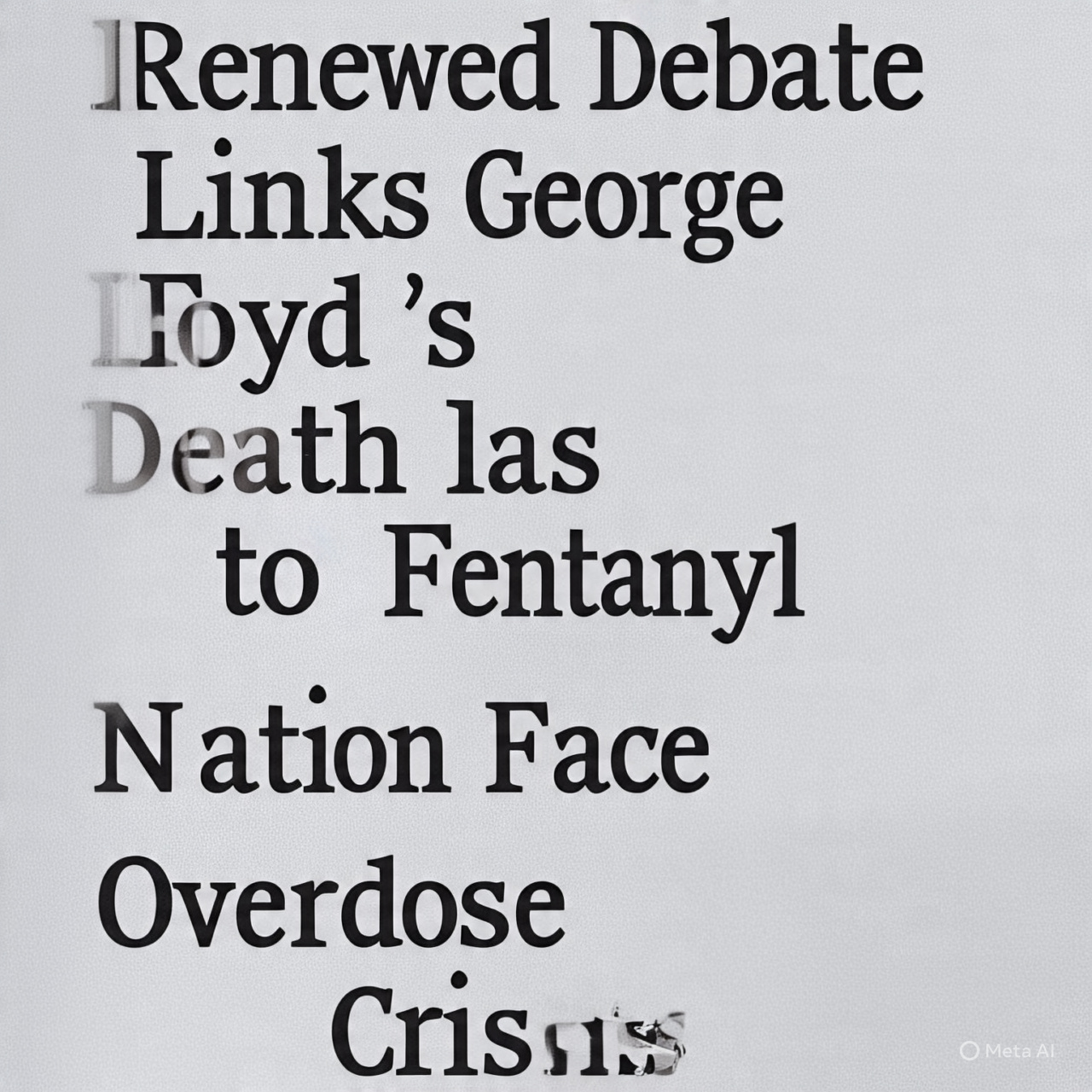
Renewed Debate Over George Floyd’s Death and the Fentanyl Crisis Sparks Public Frustration
May 14, 2025 — Washington, D.C.
More than four years after the death of George Floyd, new conversations are emerging—this time linking the tragedy to the ongoing national fentanyl epidemic. Some individuals are reigniting claims that Floyd’s death was caused primarily by fentanyl intoxication rather than police force, while expressing frustration that the broader opioid crisis was not given the same national urgency at the time.
A social media post recently went viral, stating:
“George Floyd died of fentanyl lacing and no one wants to talk about it. I have friends who died the same way — would’ve been your constituents and donors. But it wasn’t brought to public attention like it should have been. Finally, now.”
This narrative has sparked fresh controversy, particularly among those impacted by fentanyl-related overdoses who feel the government and media have been slow to address the crisis with the seriousness it deserves.
What Did the Autopsy Say?
According to the official autopsy report from the Hennepin County Medical Examiner, George Floyd’s death was ruled a homicide caused by “cardiopulmonary arrest complicating law enforcement subdual, restraint, and neck compression.” However, the toxicology report did note the presence of fentanyl (11 ng/mL) and methamphetamine, which some have pointed to in arguments suggesting drugs were a significant factor.
A second autopsy commissioned by the Floyd family also concluded his death was due to asphyxiation, not overdose.
“Yes, drugs were in his system, but they did not cause the death,” said Dr. Michael Baden, one of the independent pathologists. “The police restraint did.”
Fentanyl Epidemic Now in National Spotlight
Despite the debate around Floyd’s toxicology, there is no dispute that fentanyl is ravaging communities across the U.S. In 2022 alone, over 70,000 deaths were linked to synthetic opioids, primarily fentanyl, according to the CDC. Many victims are young adults, often unknowingly ingesting laced substances.
“We are now seeing more overdoses than ever before,” said Dr. Rahul Gupta, Director of the White House Office of National Drug Control Policy. “It’s a public health emergency.”
Families across the country, particularly in working-class and suburban communities, have voiced concerns that national leaders did not take early enough action on fentanyl—especially during the same period George Floyd’s death dominated headlines.
Political and Social Tensions Persist
Some conservative commentators and grieving families argue that while Floyd’s death led to massive societal changes, the thousands of lives lost to fentanyl received disproportionately little attention from media, politicians, and corporate donors.
“Many of our kids died silently, while the country was tearing itself apart,” said a parent from Ohio who lost her son to a fentanyl-laced pill in 2020. “Where were the protests for them?”
However, others warn that reframing Floyd’s death around fentanyl can be dangerous and dismissive of broader issues related to police accountability and systemic racism.
Sources:
- Hennepin County Medical Examiner’s Autopsy Report on George Floyd
- CDC – Drug Overdose Deaths in the U.S.
- New York Times – “Fentanyl: America’s Deadliest Drug Crisis”
- White House Office of National Drug Control Policy
